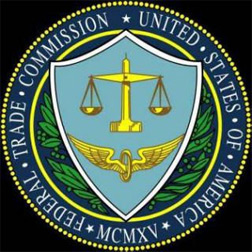NLL recently found out that the Federal Trade Commission has issued an unconscionable edict against American bloggers in violation of the First Amendment of the United States Constitution. The discovery was made while working on an article about the believability or lack thereof when it comes to information you read on the internet at which point we realized that the federal government has attempted to empower an agency called the FTC to issue edicts in violation of the constitution on the grounds that such edicts protect idiots in society from their own stupidity by forcing subject businesses to speaks words that they do not wish to utter.
In the good old days online marketers always felt free to do their jobs by assuring web users that they would always be given the best facts about a product carefully selected to fit their needs. If you are a smart consumer then you should already know that despite the quality of the facts presented to you that more investigation is needed to make an educated purchase decision because you should already know that you should never believe anything your read on the internet. If you think otherwise then you are no better than that dumbass uncle in Napoleon Dynamite who bought a time machine online that shocked Napoleon in the crotch instead of back to 1982. If you don’t do your own homework when buying online then you have no one except for yourself to blame for getting burned, unless the creep that burned you actively gave you false information so cleverly presented that it could fool a genius.
Consumers owe it to themselves to thoroughly evaluate everything they see online and should accept responsibility for not scrutinizing what they see instead of making the tax payers pick up the slack for their lack of due diligence. Now what exactly is this new "rule" by the FTC? We put "rule" in quotes because due to server location this website falls outside the jurisdiction of the FTC and because they act as if their "rules" are laws even thought technically they are not. The "rule" states that American bloggers cannot share positive opinions about a good or service unless they also include material connections they share with the owner of the good or service. In some cases this may be a good thing to do on your own because it builds trust with readers, but in other cases it subject honest bloggers to unnecessary hassles. Imagine if your friend promised you free beer for a night if you wrote a positive review of their bar containing facts that made you like the place already and found yourself the subject of an investigation for engaging in free speech just because you didn't mention something that the reader didn't need to know.
Now in some cases people should know about material connections, but only if people are making claims that they wouldn't other wise make when asked about a good or service. For instance if you hate your friend's bar because it sucks and they give you free beer to write a positive review of the bar anyway then you definitely should be required to disclose the fact that you're only recommending it because you got free beer for doing so. This differs form the previous scenario where material incentive is the incentive that finally motivates the blogger to post true feelings. Unfortunately this new "rule" puts makes it difficult for bloggers to recommend stuff they have used and truly like without ruining the legitimate appearance of their true feelings with some kind of notice that they were paid to review the product.
To help bloggers otherwise silenced or ruined by this horrible edict No Limit List extending an invitation for them to use our services because our site disclaimers clearly cover the fact that a conflicting commercial interest should always be assumed wherever one could possibly exist. The added fact that we have sections clearly designated for advertising commercial interests make it easy for people to advertise goods and services in a format where they won't have to worry about disclosing the obvious fact that no reasonable person would post anything in sections labeled jobs, services, or shopping without the intent to profit.
Conclusion
The FTC is attempting to stop honest bloggers from engaging in free speech and we are here to help. Bloggers who feel like they can no longer speak their minds about a good or service without adding content they don't wish to see on their blog are welcome to use our sections where commercial interests are assumed and clearly disclaimed.
If the FTC really wants to protect stupid consumers then they should teach them how to scrutinize information and protect themselves because that would do more sense than going on wild goose chases for bloggers recommending stuff. Take down a blog and idiots won't have a post to read. Teach idiots how to scrutinize and they will read, evaluate, and disregard posts for a lifetime.

Login to Comment and Rate
Already a PostAlmostAnything.com member?Login HereRegister to Comment and Rate
If you are not yet a PostAlmostAnything.com member Sign Up Here.
By NoLimitList.com
Posted on 10/22/2011It should also be noted that this edict gives foreign bloggers a competitive advantage over American bloggers. As a result people are more likely to purchase foreign goods recommended by foreign bloggers instead of better goods recommended by American bloggers whose recommendations are tarnished when mentioning their commercial interest, proving that this edict is both bad for honest bloggers and bad for America.